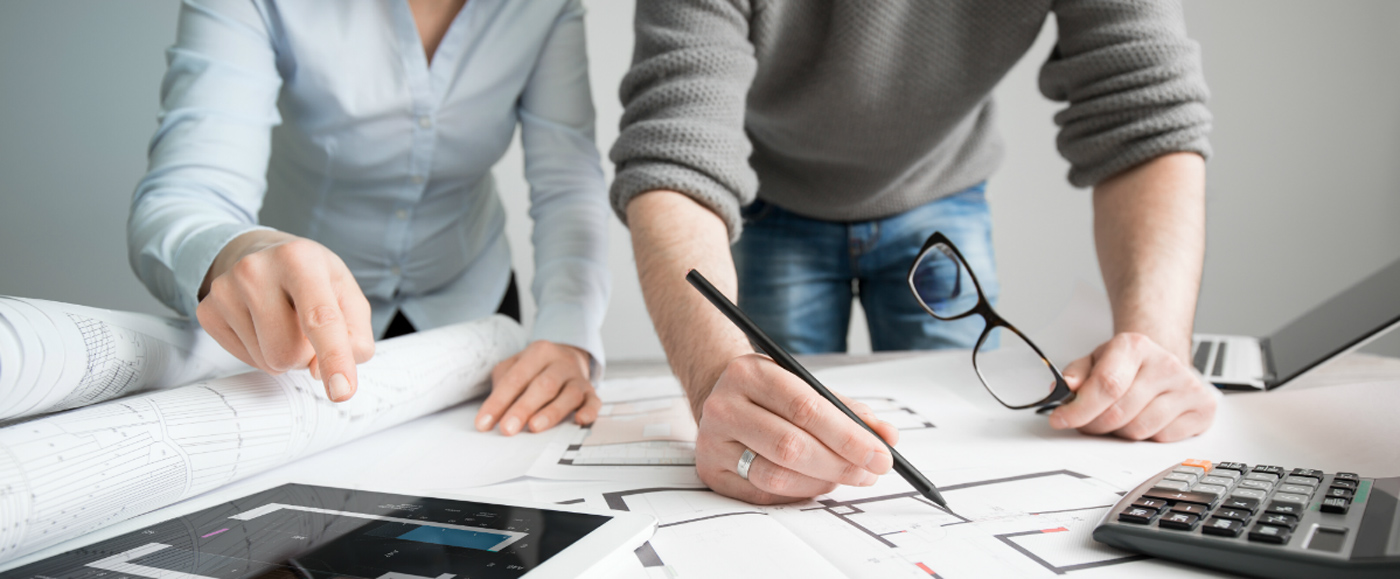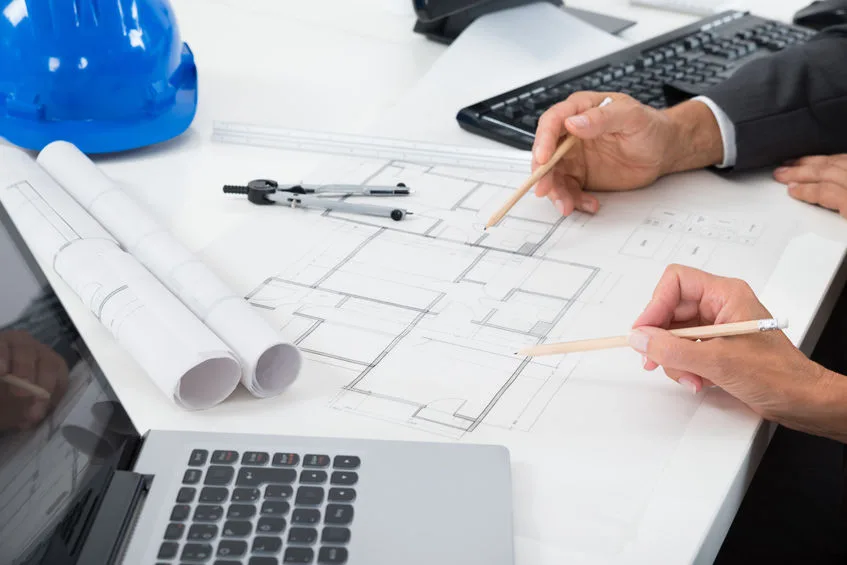Architect Checklist for Recent Commercial Projects
Discover the Essential Skills and Top Qualities Every Architect Must Possess
As an architect, you recognize that success in your field surpasses just technological skills. It's regarding mixing imagination with usefulness, cultivating partnership, and managing jobs efficiently. Each high quality plays an essential function in your ability to develop spaces that inspire and work well. What are the details skills that can absolutely set you apart? Allow's discover the necessary qualities every Architect should cultivate to prosper in this ever-evolving profession.
Imagination and Innovation
Imagination and development are at the heart of architecture, driving the layout of spaces that influence and function seamlessly. As a designer, you'll need to believe outside the box, pressing boundaries to produce one-of-a-kind options for your customers. You'll regularly explore brand-new materials, strategies, and innovations to boost your styles. Welcoming development suggests staying in advance of fads while being adaptable to change.
You'll also draw motivation from various resources-- nature, art, and also daily life can trigger fresh ideas. This capacity to mix imagination with practicality enables you to deal with complicated problems, guaranteeing your layouts meet both visual and functional needs.
Solid Communication Skills
While creating remarkable areas requires imagination, strong interaction abilities are equally as critical for architects. You require to communicate your concepts clearly to clients, specialists, and employee. Paying attention is equally as crucial; recognizing your customer's vision aids you develop styles that really satisfy their requirements.
You'll typically have to discuss complex concepts in a means that's simple to comprehend, whether you're providing a proposition or discussing materials. Reliable interaction fosters collaboration, guaranteeing everybody is on the exact same web page throughout the job.
Structure partnerships is essential, too. When you develop trust and rapport, clients are most likely to share their issues and comments, leading to better results.
Last but not least, do not underestimate the power of body movement and visual aids. They can improve your message and make your presentations more interesting. Solid communication abilities not just raise your styles however additionally enhance your specialist partnerships in the architectural world.
Technical Effectiveness in Design Software Application
As you navigate the ever-evolving globe of design, mastering style software program comes to be essential for equating your imaginative ideas right into concrete strategies. Familiarizing yourself with programs like AutoCAD, Revit, and SketchUp will not just improve your layout abilities but additionally streamline your operations. These devices enable you to produce in-depth illustrations, 3D versions, and also simulations that can aid you visualize and offer your concepts better.
Routinely updating your skills and exploring new functions can set you apart from your peers, guaranteeing your designs are specific and cutting-edge. Eventually, technical proficiency in layout software program is a foundation of successful style, helping you bring your visions to life.
Understanding of Design Principles

Recognizing engineering concepts likewise enables you to prepare for prospective challenges early in the style process. You can make informed selections that improve your designs when you're conscious of how various materials act under numerous conditions. Your layouts must not just be cosmetically pleasing but additionally useful and sustainable.
Additionally, a solid understanding of design concepts allows you to introduce within constraints. You can press innovative borders while still adhering to security criteria. Ultimately, this understanding enhances your building practice and sets you apart in an affordable area.
Job Administration Talents
Effective project management capacities are essential for designers, allowing you to look after all elements of a job from perception to conclusion. You'll need to coordinate with numerous stakeholders, consisting of contractors, customers, and designers, making sure everyone's on the very same web page. Establishing clear goals, timelines, and spending plans is essential; it helps you maintain the project on course and within extent.
As an engineer, you need to likewise be adept at danger monitoring, determining potential issues prior to they escalate. Solid interaction abilities are essential, allowing you to verbalize your vision and inspire your group. You'll take advantage of being organized and detail-oriented, as this aids simplify procedures and prevent expensive delays.
Furthermore, flexibility is vital; tasks usually progress, and being flexible enables you to react efficiently to modifications. Eventually, your project monitoring abilities can significantly affect the success of your architectural endeavors, ensuring you deliver high quality outcomes on schedule and within budget plan.
Focus to Information
While managing projects is vital, your focus to detail can make a significant difference in the quality of your work. Every line you attract, every material you choose, and every tiny specification you keep in mind adds to the general success of a job. You require to be precise, making certain that your designs not just meet visual standards but additionally adhere to developing guidelines and codes.
Missing also a little detail can result in pricey revisions or security concerns down the line. By growing a keen eye for detail, you boost your ability to find potential issues before they escalate. This caution not only saves you time and sources but also constructs your click here for more info track record as a reliable Architect. Bear in mind, it's commonly the smallest details that raise a task from good to extraordinary. Embrace this ability, and let it guide your design procedure, making sure that your vision is performed flawlessly.
Versatility and Problem-Solving Skills
As an engineer, you'll typically deal with unforeseen changes in design and task demands. Your ability to accept these shifts and discover cutting-edge options is essential for success. Staying flexible in your technique not just boosts your analytical abilities but also keeps your projects on track.
Accepting Modification in Style
Embracing modification in design is necessary for designers, specifically when steering progressing customer needs and emerging innovations. You need to cultivate versatility, as jobs usually move instructions based upon brand-new insights or restraints. Being open to alter permits you to discover cutting-edge strategies and create remedies that resonate with your clients.
When faced with obstacles, your analytical abilities enter into play. You'll usually require to reconsider ideas and change strategies on the fly, making sure that the last end result lines up with the client's vision while fulfilling security and regulative standards. By being flexible and resourceful, you not just boost your styles yet additionally construct count on with your customers, verifying that you can navigate the complexities of contemporary architecture successfully.
Innovative Solutions to Obstacles

Adaptability in Job Monitoring
While maneuvering the intricacies of job administration, flexibility comes to be an important possession for engineers. You'll commonly deal with unexpected challenges, from style changes to budget plan restraints, requiring fast thinking and versatility. Accepting change permits you to pivot your methods and find ingenious solutions, making certain project success.
Strong analytical skills are vital; they enable you to assess scenarios, evaluate options, and implement effective remedies on the fly. When collaborating with varied teams, being open to responses and different concepts fosters partnership and sparks creativity.
Often Asked Questions
What Educational History Is Called For to Become an Architect?
To become an architect, you'll require at the very least a professional level in style, frequently a Bachelor's or Master's. Getting and finishing a teaching fellowship licensure through examinations is crucial for your job advancement.
Just How Crucial Is Networking in the Style Area?
Networking's vital in architecture. It helps you develop relationships, find task chances, and gain insights from skilled specialists. By attaching with others, you enhance your job leads and remain updated on sector patterns and advancements.
What Are the Common Profession Paths for Architects?
Usual career paths for designers include layout duties in firms, job management, urban preparation, and specialized locations like sustainable architecture. Architect. You may likewise check out mentor or consulting, relying on your passions and experiences
How Can Designers Remain Updated With Sector Trends?
To remain upgraded with market patterns, you ought to regularly participate in conferences, join specialist associations, sign up for pertinent publications, and involve with on the internet discussion forums. Connecting with peers likewise aids you obtain understandings into arising developments in style.
What Duty Does Sustainability Play in Modern Style?
Sustainability shapes modern-day architecture by emphasizing energy efficiency, resource preservation, and environmentally why not look here friendly products. You'll develop areas that reduce environmental influence, enhance owner well-being, and reply to environment obstacles, making your designs a lot more relevant and impactful.
While designing exceptional spaces needs creativity, solid interaction abilities are just as important for designers. Strong interaction abilities not just boost your styles but also look at more info reinforce your professional partnerships in the building globe.
Proficiency in design software application lays the foundation for a deeper understanding of engineering concepts, which is important for designers.As an engineer, you'll typically encounter unforeseen modifications in layout and project demands.Embracing change in layout is vital for architects, especially when steering evolving client needs and arising innovations.